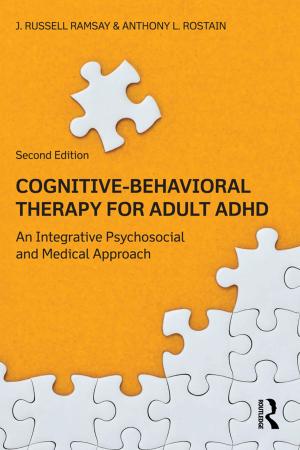Mental State Defences in Criminal Law
Nonfiction, Social & Cultural Studies, Social Science, Crimes & Criminals, Criminology| Author: | Steven Yannoulidis | ISBN: | 9781317097297 |
| Publisher: | Taylor and Francis | Publication: | April 22, 2016 |
| Imprint: | Routledge | Language: | English |
| Author: | Steven Yannoulidis |
| ISBN: | 9781317097297 |
| Publisher: | Taylor and Francis |
| Publication: | April 22, 2016 |
| Imprint: | Routledge |
| Language: | English |
By defining appropriate boundaries for the defence of insanity and the doctrine of automatism, this book presents a consistent and principled approach to the reform of mental state defences. In particular, by undertaking an interdisciplinary analysis of the various factors that inform these defences the book concludes with several practical and robust reform proposals There are three objectives that underpin the suggested reform proposals. First, to ensure that an accused will be able to raise a defence of insanity for involuntary conduct arising from mental disorder even where he or she is aware of the nature and quality of such conduct. Second, to provide principled means by which to establish the criminal responsibility of an accused for conduct performed in a state of drug-induced psychosis. Third, to ensure that criminal conduct arising from a state of ’impaired consciousness’ does not automatically result in the outright acquittal of an accused. In articulating the competing demands that must be balanced in order to secure a principled approach to the reform of mental state defences the book will be of relevance to all common law countries.
By defining appropriate boundaries for the defence of insanity and the doctrine of automatism, this book presents a consistent and principled approach to the reform of mental state defences. In particular, by undertaking an interdisciplinary analysis of the various factors that inform these defences the book concludes with several practical and robust reform proposals There are three objectives that underpin the suggested reform proposals. First, to ensure that an accused will be able to raise a defence of insanity for involuntary conduct arising from mental disorder even where he or she is aware of the nature and quality of such conduct. Second, to provide principled means by which to establish the criminal responsibility of an accused for conduct performed in a state of drug-induced psychosis. Third, to ensure that criminal conduct arising from a state of ’impaired consciousness’ does not automatically result in the outright acquittal of an accused. In articulating the competing demands that must be balanced in order to secure a principled approach to the reform of mental state defences the book will be of relevance to all common law countries.















